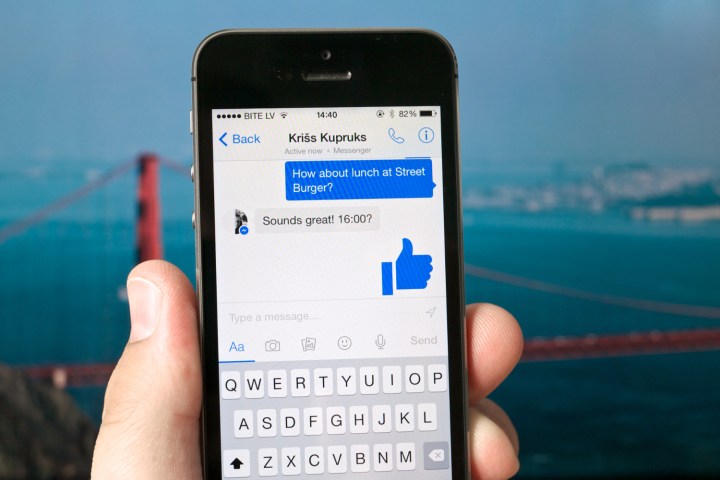
On Monday, Facebook began rolling out Live Location, a new Messenger feature that lets users share up-to-date location info with friends and family. For up to one hour, you can expose your real-time location to the chat participants of your choice. Contacts can track your progress when you’re on your way, or find your current location if you are meeting somewhere. They will also be able to see an estimate of how long it would take to get to your location by car.
According to Facebook, “How far away are you?” is one of the most used phrases on Messenger as people talk to friends and family. “Live Location is super helpful when trying to coordinate with friends, telling people how close you are when you’re on your way to an appointment or even sharing where you are with your roommate when you’re on your way home at night,” wrote product manager Selena Wang.

Facebook said Live Location won’t impact battery life — “We put a lot of time and effort into […] minimizing battery consumption to the point you wouldn’t even have to think about it,” head of Messenger David Marcus told TechCrunch. You can turn Live Location off after it’s been activated — a countdown timer lets you know how much longer your location will be shared before you need to re-enable it.
As TechCrunch points out, it’s not Facebook’s first location-sharing rodeo. Prior to 2015, Messenger shared a momentary exact location with each message. But
“Many of use make plans on Messenger that involve finding each other, or letting friends and loved ones know we’re on the way,” Marcus wrote in a blog post. “Sharing your location will also help some of you feel safer on the way home.”
The launch of Live Location comes on the heels of a new Google Maps location feature release last week: “Share location.” Users can broadcast their whereabouts for a set period of time (between 15 minutes and three days) or indefinitely, and pin a person’s location to their home screen for speedier access.

